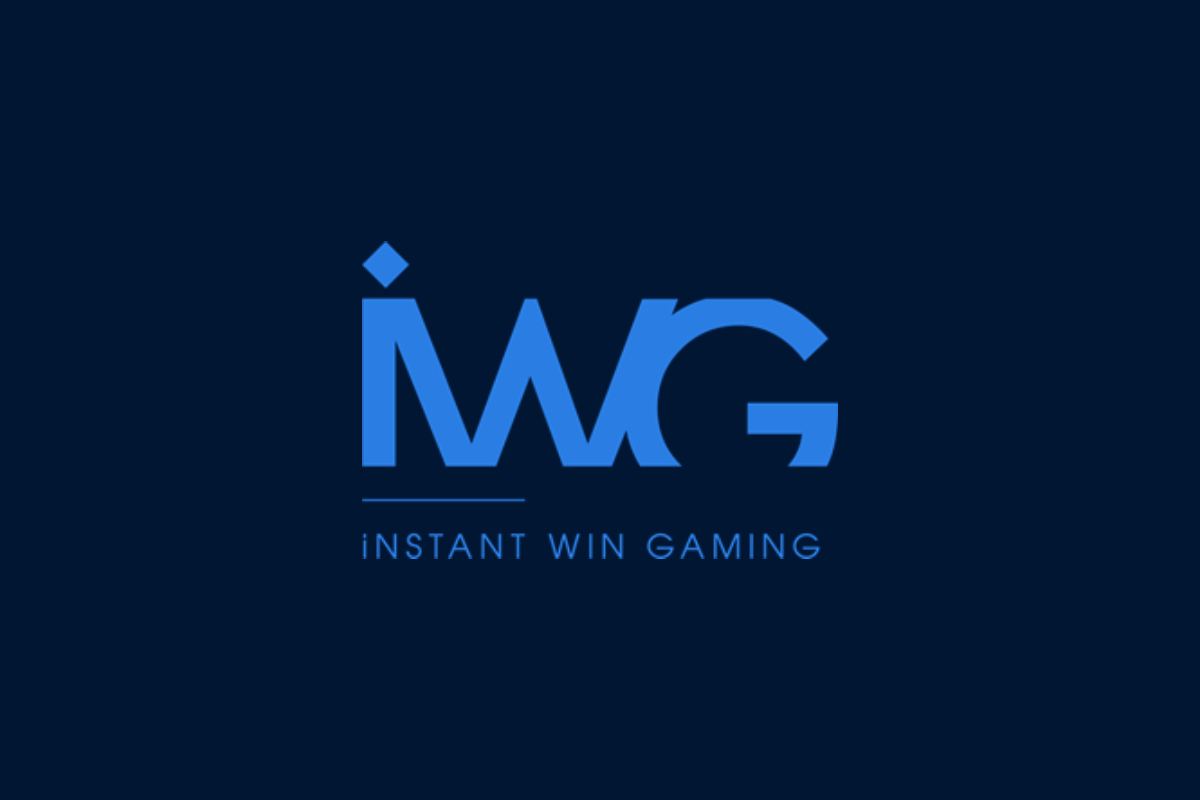Industry News
Glacial Pace of Change: Web Notifications Coming Soon to Apple Devices?
Apple’s dragging its feet in response to Anti-Trust Pressure; Bob Lawson, Optimove’s Director of Mobile offering, looks at what that actually means
Operators and mobile app developers love Apple’s App Store. Specifically, those who have a high percentage of their players on iPhones. They love the reach the stores give them to acquire new players.
Operators and mobile app developers dislike Apple’s App Store. They are tired of the hoops they need to jump through to get their app listed. Not to mention Apple’s 13,000-word “guidelines,” which include restrictions for types of apps they will accept, and where, AND the slice that the App Stores take on every dollar spent through the app, kicking a big hole in potential revenue operators can earn from their players.
It’s fair to say operators and mobile app developers alike have a love-hate relationship with the App Stores and Apple in particular.
Recently Apple has come under increasing pressure from Anti-Competition lobbyists to offer other ways for users to utilize their apps on iPhones. But a business with over 745 million software subscribers, grossing over $70bn in direct app revenue a year, isn’t going to give that up easily. Add to this their slowing revenue from hardware sales, and some commentators see Apple increasingly as a software company rather than a vendor of high-end devices. What are we to make of these somewhat conflicting messages? Consider the following:
- Apple is under pressure from antitrust regulators to show opportunities for companies that don’t, or can’t, have apps in the App Store. The ruling from their very public lawsuit with Epic Games in the US, and the EU ruling in favor of Spotify, also means that Apple needs to show tangible proof that the Apple ecosystem isn’t closed to competition.
- Apple is doing everything it can to hold onto its dominant position while appearing to listen to software makers’ concerns. They continue to make only minor tweaks to App Store terms in response to class actions and slowly introduce small, frequent changes. Those Changes make it very difficult for developers to stay on top of what would make Apple block their new app listing.
So how do the recent announcements at the June 22 WWDC event give us a clue to Apple’s response to pressures? First, it continues to show Apple’s strategy for the glacial pace of change.
- Apple has for years been reluctant, to say the least to allow applications other than approved apps on its store, accessing phone and browser functionality. Push notifications, for example, have been possible on Apple mobile apps since June 17, 2009. Just 11 months after it introduced the App Store in July 2008. They have always seen the Apple Push Notifications service (APNs) as a critical part of the iPhone experience.
And in the meantime, next door, Google has allowed much more extensive options for delivering notifications on Android devices. For example, since 2013, it has been possible to deliver notifications on an Android phone to users who don’t have the mobile app installed but have subscribed for notifications from a mobile responsive website or progressive web app (PWA).
But there’s a big difference here and it is that neither websites nor PWAs are downloaded from the Google Play Store, so they aren’t governed by the submission rules or delivering a revenue cut for the Play Store.
- Apple’s resistance to following Google’s lead could easily be seen as an attempt to restrict the popularity of Web-Based Applications over mobile apps published through its stores. After all, in the past it did follow Google’s lead when it first introduced notifications to mobile apps published through the Google Play Store.
- Apple argues that it’s about maximizing users’ customer experience, but increasingly it has been seen as anti-competitive. It’s strongly suspected that the recent announcement at WWDC 22 to introduce web push notifications to Apple devices is a way to demonstrate that they have no platform bias. They will soon introduce web notifications to browsers running on mobile devices, closing the gap between Mobile Apps and Web Apps.
- The technology has been available as a developer test build for months. At their developer conferences, Apple often announces features well into the future to get their community excited about what’s to come. Rarely do they announce something that will be available up to a year later. So why announce now, and why so far in advance?
- Antitrust pressure may have led to the announcement this year. And maybe, just maybe, by kicking the can down the road, the heat will come off. They have built it, but will they come? Only time will tell.
What does this mean for the industry?
Marketing automation tolls will relish the prospect of allowing more freedom around mobile devices. CRM Marketing Platforms have many customers who don’t, and won’t, have apps in the store for one reason or another. So being able to offer an experience that is on a par with that of a Native Mobile app is a compelling idea. The power of push notifications to re-engage with lapsed players and send reminders to Apple users, as has been possible with Android, is undoubtedly a good thing.
Is Apple ready to truly embrace customer experience across mobile and web applications? It’s anyone’s guess, well anyone not named Tim Cook, anyway. We’ll be watching this space closely over the coming months.
Bob Lawson is Director of Mobile Offerings at Optimove. He joined Optimove early in 2022, when it acquired Kumulos, the company he co-founded. Kumulos was a market-leading Mobile and Web Messaging Platform serving a broad range of industries. Bob has spent more than 18 years in technology, particularly Mobile MarTech. He has held commercially facing roles in start-ups, scale-ups, and large enterprise businesses, particularly in Mobile Technology. Before working in the Tech space, he spent 15 years in Financial Services, most recently as Marketing Director of one of Europe’s largest Fund Management Companies.
Industry News
Scientific Games Announces Mike Cardell as Senior Vice President, Americas Systems

Scientific Games announces the appointment of Mike Cardell as the company’s Senior Vice President of Americas Systems. As the industry’s fastest-growing lottery systems supplier globally, Cardell’s appointment is another example of the company’s continued investments in people and products to innovate for its customers.
Mike Cardell.jpgCardell is an accomplished business technology leader with more than 17 years of experience and a proven track record in innovating technology-based products and services, including enterprise and consumer-facing applications, transaction processing platforms, large-scale IT conversions, strategic growth and impactful results.
He will lead all aspects of the company’s Americas lottery system business, driving incremental revenue and expanding product offerings while nurturing existing client relationships to grow lottery profits responsibly. Cardell will also be executing product and business development strategies as well as overseeing central and regional operations, service and contract management.
John Schulz, President, Americas & Global Instant Products, said, “With a keen understanding of developing strategies for sustainable growth, Mike will be instrumental in growing our systems business and ensuring innovation and operational excellence in our existing system operations. His strategic mindset and leadership experience make him a valuable addition to Scientific Games. We are excited to welcome him to our team.”
Before joining Scientific Games, Cardell spent more than 11 years at Fiserv where he most recently served as the global fintech and payments company’s Vice President and General Manager of Next Gen Solutions: Signature and Cloud Solutions. In this role, he managed the modernization of legacy enterprise account processing software solutions and cloud transformation solutions for large financial institutions and financial technology companies. He also spent five years managing business development and marketing for Hewlett-Packard.
Cardell holds a B.A. in Public Relations from Texas Tech University.
Scientific Games is a trusted partner to 150 lotteries in 50 countries around the globe, providing games, technologies, analytics and services that responsibly drive maximum returns to their beneficiary programs.
Industry News
Meridian Donate: Revolutionizing CSR in the Betting and Gaming Industry

- Innovative engagement strategy positions MeridianBet as a leader in CSR within the betting and gaming industry
- Optimized brand loyalty as active customer participation in CSR strengthens connection and loyalty
- Scalable impact, as the model is designed for expansion and could be adapted to new markets, indicating potential for widespread adoption and growth
Transforming Customers into Environmentalists and Humanitarians
MeridianBet’s pioneering initiative, Meridian Donate, is transforming the betting industry by engaging customers directly in corporate social responsibility (CSR) actions. This unique platform allows customers to actively participate in and fund various environmental, societal and humanitarian projects, setting a new standard for customer engagement and community impact.
Key Features of Meridian Donate:
- Direct customer involvement: Customers are not just donors but active participants in CSR decisions
- Diverse programs: Offers choices from global afforestation to local humanitarian efforts
- Partnerships with renowned organizations: Collaborates with entities like the Red Cross and UNICEF
Expanding Impact: A Year-by-Year Growth
The Meridian Donate platform has seen substantial growth in its scope and impact:
- Number of individual campaigns: Grew from 8 in 2021 to 20 in 2023
- National markets Integrated: Expanded from 3 in 2021 to 8 in 2023
- Direct Beneficiaries: Increased from 43 NGOs in 2021 to 159 in 2023
In 2023 alone, the platform’s expansion into eight markets facilitated 20 customer-funded campaigns, directly benefiting 159 NGOs, up from 122 the previous year.
Continued Commitment to Innovation and Community Involvement
Meridian Donate not only showcases MeridianBet’s dedication to CSR but also redefines the role of digital marketing within the industry. By converting sports bettors into active CSR participants, Meridian Donate enhances customer loyalty and brand value, making it a critical element of MeridianBet’s market strategy.
Recent Successes and Future Outlook
In its recent operation, Meridian Donate has launched an ambitious global afforestation initiative, committing to plant 20,000 seedlings across various regions. This project not only underscores our environmental commitment but also enhances our brand’s community presence. Already, several hundred contributions have been recorded in the platform’s first month, indicating robust customer engagement and support.
The post Meridian Donate: Revolutionizing CSR in the Betting and Gaming Industry appeared first on European Gaming Industry News.
Industry News
Games Global Announces Launch of IPO

Games Global Limited (“Games Global”), a leading developer, distributor and marketer of innovative online, casino-style gaming (“iGaming”) content and integrated business-to-business solutions to iGaming operators, announced today that it has launched the roadshow for its initial public offering (“IPO”) of 14,500,000 ordinary shares. The offering consists of 6,000,000 ordinary shares offered by Games Global and 8,500,000 ordinary shares to be sold by Games Global’s existing shareholder (the “Selling Shareholder”). Games Global will not receive any proceeds from the sale of the shares by the Selling Shareholder. The underwriters will have a 30-day option to purchase up to an additional 2,175,000 ordinary shares from the Selling Shareholder at the IPO price, less underwriting discounts and commissions. The IPO price is currently expected to be between $16.00 and $19.00 per share. Games Global has applied to list its ordinary shares on the New York Stock Exchange under the symbol “GGL”.
J.P. Morgan, Jefferies and Macquarie Capital are acting as joint lead book-running managers for the proposed offering. Barclays and BTIG are acting as book-running managers for the proposed offering.
The proposed offering will be made only by means of a prospectus. Copies of the preliminary prospectus relating to the proposed offering, when available, may be obtained from:
- J.P. Morgan Securities LLC, c/o Broadridge Financial Solutions, 1155 Long Island Avenue, Edgewood, NY 11717, or by email at [email protected] or [email protected];
- Jefferies LLC, Attention: Equity Syndicate Prospectus Department, 520 Madison Avenue, New York, NY 10022, by phone at (877) 821-7388, or by email at [email protected]; or
- Macquarie Capital (USA) Inc., Attention: Equity Syndicate Department, 125 West 55th Street, New York, NY 10019, or by email at [email protected]
A registration statement relating to these securities has been filed with the U.S. Securities and Exchange Commission but has not yet become effective. These securities may not be sold, nor may offers to buy be accepted, prior to the time the registration statement becomes effective. This press release does not constitute an offer to sell or the solicitation of an offer to buy these securities, nor shall there be any sale of these securities in any state or jurisdiction in which such offer, solicitation or sale would be unlawful prior to registration or qualification under the securities laws of any such state or jurisdiction.
In any member state of the European Economic Area (the “EEA”) this announcement, and the offering, are only addressed to and directed at persons who are “qualified investors” (“Qualified Investors”) within the meaning of Regulation (EU) 2017/1129 (the “Prospectus Regulation”). In the United Kingdom, this announcement, and the offering, are only addressed to and directed at persons who are “qualified investors” within the meaning of the Prospectus Regulation as it forms part of domestic law in the United Kingdom by virtue of the European Union (Withdrawal) Act 2018 who (i) have professional experience in matters relating to investments falling within Article 19(5) of the Financial Services and Markets Act 2000 (Financial Promotion) Order 2005, as amended (the “Order”), (ii) are high net worth entities who fall within Article 49(2)(a) to (d) of the Order, or (iii) are persons to whom it may otherwise lawfully be communicated (all such persons being referred to as “relevant persons”).
This announcement must not be acted on or relied on (i) in the United Kingdom, by persons who are not relevant persons, and (ii) in any member state of the EEA, by persons who are not Qualified Investors. Any investment or investment activity to which this announcement relates is available only to and will only be engaged with (i) in the United Kingdom, relevant persons, and (ii) in any member state of the EEA, Qualified Investors.
The post Games Global Announces Launch of IPO appeared first on European Gaming Industry News.
-

 gaming2 years ago
gaming2 years agoODIN by 4Players: Immersive, state-of-the-art in-game audio launches into the next generation of gaming
-
EEG iGaming Directory7 years ago
iSoftBet continues to grow with new release Forest Mania
-
News6 years ago
Softbroke collaborates with Asia Live Tech for the expansion of the service line in the igaming market
-
News5 years ago
Super Bowl LIII: NFL Fans Can Bet on the #1 Sportsbook Review Site Betting-Super-Bowl.com, Providing Free Unbiased and Trusted News, Picks and Predictions
-
iGaming Industry6 years ago
Rick Meitzler appointed to the Indian Gaming Magazine Advisory Board for 2018
-
News5 years ago
REVEALED: Top eSports players set to earn $3.2 million in 2019
-
iGaming Industry6 years ago
French Senator raises Loot Boxes to France’s Gambling Regulator
-
News6 years ago
Exclusive Interview with Miklos Handa (Founder of the email marketing solutions, “MailMike.net”), speaker at Vienna International Gaming Expo 2018












